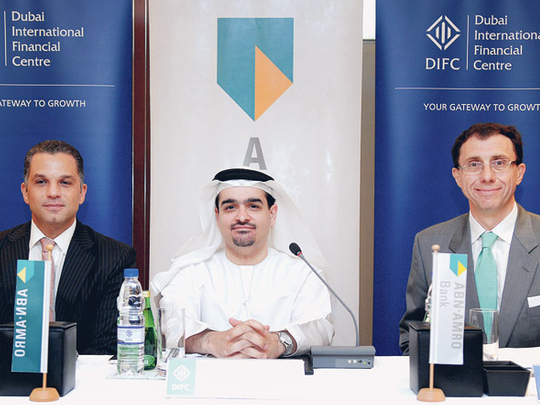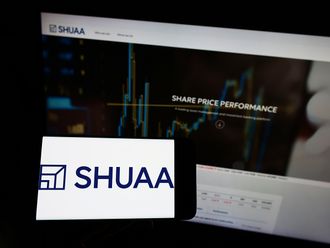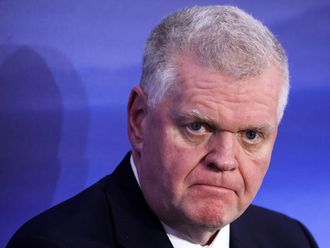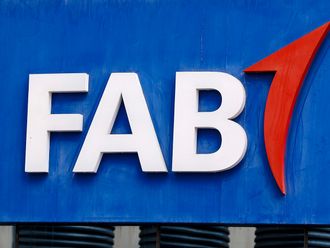
Dubai: ABN Amro, a Dutch-government owned bank, said yesterday that it had got a Category 1 banking licence to operate from the Dubai International Financial Centre (DIFC).
"We are now a DIFC-based company, regulated by the Dubai Financial Services Authority. We have moved our private banking operations across the Middle East region to DIFC," said Hassan Nahas, head of ABN Amro's private banking, at a press conference in Dubai Monday.
The move follows the acquisition of ABN Amro in 2007 by RFS Holdings (RFS), a consortium that consisted of Royal Bank of Scotland, Fortis and Banco Sandtander. ABN Amro has been operating in the Middle East since 1973. The acquisition of the bank by RFS resulted in the banking licence granted by the Central Bank of UAE going to RBS.
Acquisition
ABN Amro Private Banking is part of the ABN businesses acquired by the Dutch government in 2008. With the Category 1 banking licence the bank will operate primarily as a private bank and can offer a range of services, such as accepting deposits, providing credit, offering a variety of trust, custody and investment services, as well as investment advisory and collective investment fund activities.
From the DIFC the bank plans to focus on its private banking clients spread across the Middle East and India. "Our focus will be on ultra high networth individuals from the Middle East and the non-resident Indian client base we have in the region. In the GCC we are primarily focused on the UAE and Qatar," said Nahas.
Globally, the bank manages assets worth about 120 billion euros (Dh594.44 billion), and about 5 per cent of this is from the Middle East region.
"DIFC is located at the centre of a region that has huge personal wealth, and its proximity to some of the fastest growing emerging markets like India offers us huge opportunity of growth," said Didier Duret, Chief Investment Officer of ABN Amro Private Banking, Global Strategy and Research.
ABN has plans to expand its exposure to bond issues from the region as part of its growing exposure to the emerging markets fixed income portfolio, which stands at about 30 per cent of its global asset allocation.
Some of the regional bonds, such as Commercial Bank of Qatar, Qatar Telecom and National Bank of Abu Dhabi, feature among the top 40 bonds the company tracks globally.
Growing hub
DIFC has more than 900 companies operating from its jurisdiction, Abdullah Mohammad Al Awar, Chief Executive Officer of DIFC Authority, said yesterday.
Speaking at a press conference to announce ABN Amro getting a Category 1 banking licence, Awar said that despite all the financial crisis, more than 100 new companies began operations in DIFC in 2009.
"Most of the top banks from across the world are already located in the DIFC. As a sustainable financial eco-system the DIFC is now comparable with other leading centres like London, Hong Kong and Singapore," he said.












